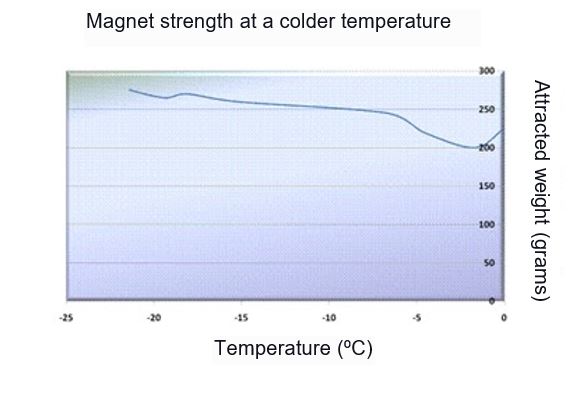
How does cold affect magnets?
Magnets have a capacity to attract metallic elements generating magnetic fields. These magnetic fields are created due to the movement of electric charges, where the atoms of the permanent magnets are aligned to achieve a larger magnetic field. If we put a magnet in a place that has a low temperature the magnetism will increase. This is because the molecules inside the magnet have lower kinetic energy, so consequently, they will move more slowly, facilitating the alignment of the particles. This fact will cause the magnetic field to be strengthened by the magnet, increasing both its magnetic properties and its attractive force.
How does cold affect an electromagnet and a permanent magnet?
On the one hand, a neodymium magnet will maintain its properties and correct operation down to -130ºC. On the other hand, ferrite magnets have a greater facility for demagnetization when they are at a lower temperature than at a higher temperature. This type of permanent magnet will lose its magnetic strength below -60ºC.
Like permanent magnets, electromagnets have a stronger magnetic field at low temperatures, since the cold decreases the resistance of the wire, increasing its current. The atoms in the magnets have a slower and more orderly vibration when cold, generating a stronger magnetic field and strength.
As we can see in the following graph the magnetic force decreases as the temperature increases.

Benefits of a magnet at low temperatures
As the temperature of the magnet’s environment decreases the Br increases, in other words, the flux density remaining in the magnet once it has been magnetized is higher.
On the other hand, Hci can increase as much as double or triple its value. From the point of view of its magnetization, the field is required to lead to saturation of the magnet.
Applications in cold places where magnets are used
The best-known magnets that withstand low temperatures are known as superconducting magnets, they transfer electric current while maintaining the energy in its entirety, this great conductivity is usually intended for applications such as magnetic resonance, magnetic levitation trains, and particle accelerators.